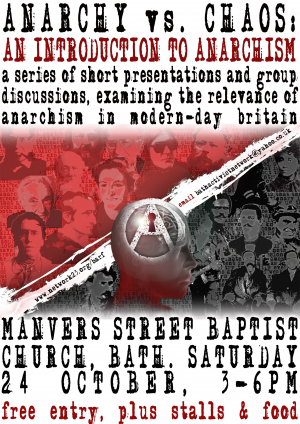THE FOLLOWING FROM some of Bristol First of May Group:
May Day has been celebrated as International Workers’ Day since 1890, and is a time to remember our collective history, and to re-ignite our present day struggles for a better world. For May Day 2013, unions in our sister-shitty Bristol are calling for a March Against Austerity on 04/05. We are one of the ones calling for a Radical Block/Bloc (dictionary, anyone?) to march with them.
Come and join us on the streets if you are:
Mad – at the govermint which continues to attack society’s most vulnerable for the benefit of no one, other than themselves (and their rich mates)
Angry – that the costs of living are going up and your boss won’t pay you more
Frustrated – that your working conditions are being destroyed and the bureaucrats at the top of your union don’t seem up for the fight your fellow workers are ready for
Worried – that if we don’t do something soon, there will be no NHS or decent education left for your children
Bored – with the latest lies from the politicians and press you’re expected to believe
Inspired – by the courage of those that have gone before us, who have fought against exploitation, and won us all victories which last to this day
Optimistic – about creating a society that can meet all our needs and seek an end to: sexism, racism, transophobia, ableism, ageism, religious intolerance, homophobia, and the many other oppressive ways we are divided.
Grab your red flag, your black flag, your pirate flag, or no flag at all, and get together at 10.30am, Saturday the 4th of May on College Green to take to the streets of Bristol, and lets rekindle the spirit of resistance!





